What is Reiki and how does it work? Reiki, pronounced as “ray-key,” is a form of alternative therapy that originated in Japan. It is based on the belief that a universal life force energy flows through every living thing. Reiki comprises two Japanese words: “rei,” meaning universal, and “ki,” meaning life energy or vital force.
Contents
Origin and History of Reiki
Reiki was developed in the early 20th century by a Japanese Buddhist monk, Mikao Usui. Usui developed the system of Reiki after undergoing a spiritual experience on Mount Kurama, where he received the ability to heal through energy transfer.
This spiritual awakening led him to create the foundational principles and practices of Reiki, which have since been passed down through generations of practitioners.
Principles of Reiki
The practice of Reiki is guided by five principles or precepts, which are:
- Just for today, I will not be angry.
- Just for today, I will not worry.
- Just for today, I will be grateful.
- Just for today, I will do my work honestly.
- Just for today, I will be kind to every living thing.
These principles serve as a moral and spiritual guide for Reiki practitioners, shaping their mindset and intentions during sessions.
Understanding the Concept of Energy Healing
Reiki is based on the concept that all living beings have a vital life force energy that flows through them. When this energy is blocked or depleted, it can lead to physical, emotional, or spiritual imbalances and illness.
Reiki aims to restore the flow of this energy, promoting healing and well-being. This concept aligns with ancient traditions in various cultures worldwide, such as Chinese Qi, Hindu Prana, and Japanese Ki.
What is Reiki and How Does It Work?
Reiki practitioners channel this universal life force energy through their hands to the recipient. The energy is believed to flow wherever it is needed most, balancing the body, mind, and spirit. Reiki is a non-invasive and gentle therapy that can be used alone or with other medical or holistic treatments.
The process involves the practitioner placing their hands lightly on or just above the recipient’s body, allowing the energy to flow freely and facilitate healing.
Reiki Techniques and Methods
Reiki has various techniques and methods, each with its own purpose and application. Hand placements are a fundamental aspect of Reiki, where practitioners focus on specific energy centers known as chakras. By placing their hands on these areas, practitioners can direct the flow of energy and address imbalances within the body.
Distance healing is another technique through which Reiki energy is sent to someone not physically present through intention and visualization. Symbols are also used in Reiki to enhance energy flow and promote healing as tools for focusing intention and amplifying the healing process.
Benefits of Reiki
Discover the profound benefits of Reiki, a gentle yet powerful healing modality that harmonizes the mind, body, and spirit. As an ancient Japanese practice, Reiki promotes relaxation, stress reduction, and overall well-being by channeling universal life energy through the hands of the practitioner.
Whether you seek physical healing, emotional balance, or spiritual enlightenment, Reiki offers a holistic approach to health and vitality. Explore the transformative effects of Reiki and unlock a pathway to inner peace and radiant health.
Reiki for Physical Healing
Reiki promotes physical healing by stimulating the body’s natural healing processes, boosting the immune system, relieving pain and discomfort, and accelerating recovery from illness or injury. This gentle yet powerful therapy can be effective for many physical ailments, including chronic conditions, acute injuries, and post-surgical recovery. Read more:
Reiki for MS (Multiple Sclerosis): A Holistic Approach to Managing Symptoms
Reiki for Mental and Emotional Well-being
In addition to its physical benefits, Reiki can promote mental and emotional well-being by reducing stress and anxiety, promoting relaxation and calmness, improving mood and emotional stability, and releasing emotional blockages and trauma.
Many people report feeling a sense of inner peace and balance after Reiki sessions, allowing them to cope better with life’s challenges and cultivate a positive outlook. Discover Reiki’s effects on postpartum depression.
Reiki for Spiritual Growth
Reiki is often described as a holistic healing modality that addresses the body, mind, and spirit. While its physical and emotional benefits are well-documented, Reiki can facilitate spiritual growth and self-discovery.
By deepening their connection to themselves and others, fostering a sense of inner peace and harmony, awakening intuition and spiritual awareness, and facilitating personal growth and self-discovery, Reiki practitioners can experience profound shifts in consciousness and spiritual evolution.
Reiki and Stress Reduction
One of the most well-known benefits of Reiki is its ability to reduce stress. In today’s fast-paced world, stress has become a prevalent issue that can negatively impact both physical and mental health. Reiki offers a natural and holistic approach to stress reduction, promoting relaxation and restoring balance to the body’s energy system.
By releasing tension and promoting a state of deep relaxation, Reiki helps alleviate stress’s physical and emotional symptoms, allowing individuals to experience a sense of calm and inner peace.
Reiki and Pain Management
Reiki can also be effective in managing pain, whether it’s acute or chronic. Pain is a complex phenomenon that involves physical, emotional, and psychological factors. Reiki addresses pain on multiple levels, promoting the body’s natural healing mechanisms and releasing muscle and tissue tension.
By restoring balance to the body’s energy system and promoting relaxation, Reiki helps to reduce pain and discomfort, allowing individuals to experience relief and improve their overall quality of life.
Reiki as a Complementary Therapy
Reiki is often used as a complementary therapy alongside conventional medical treatments. While it is not a replacement for medical care, Reiki can enhance the effectiveness of other therapies and medications while minimizing side effects.
Many healthcare professionals recognize the value of Reiki as a holistic healing modality and recommend it to their patients as part of a comprehensive treatment plan. By addressing the underlying causes of illness and promoting the body’s natural healing processes, Reiki can support and enhance individuals’ overall health and well-being.
Reiki Attunement Process
To become a Reiki practitioner, one must undergo an attunement process, receiving an initiation from a Reiki master. This process opens up the practitioner’s energy channels, allowing them to channel Reiki energy for healing themselves and others.
The attunement process is a sacred and transformative experience that connects the practitioner to the universal life force energy, empowering them to become conduits for healing and transformation. The practitioner attains the Reiki energy through energetic transmissions and rituals, enabling them to access and channel it with greater ease and effectiveness.
FAQs
While Reiki has spiritual aspects, it is not affiliated with any specific religion. People of all faiths or no faith can practice it. Reiki is based on universal principles of energy healing and is compatible with a wide range of spiritual beliefs and practices.
Reiki is considered safe for people of all ages and in all health conditions. It is non-invasive and gentle, with no known adverse side effects. Reiki can be safely used alongside conventional medical treatments and is suitable for individuals of all backgrounds and health statuses.
The number of sessions needed varies depending on the individual and their specific goals. Some people may experience benefits after just one session, while others may require multiple sessions for optimal results. Factors such as the severity of the condition, the individual’s receptivity to Reiki, and their commitment to the healing process can all influence the treatment outcome.
Yes, Reiki can be sent remotely to someone not physically present. Distance healing is as effective as in-person sessions, as Reiki energy is not limited by time or space. Practitioners can send Reiki energy to anyone, anywhere in the world, using intention and visualization to connect with the recipient energetically.
In some cases, insurance may cover Reiki if a licensed healthcare professional performs it. However, coverage varies depending on the insurance provider and policy. Reiki is often considered an out-of-pocket expense and may not be covered by insurance plans that do not recognize alternative therapies. It is recommended to check with your insurance provider to determine coverage options for Reiki treatments.
Reiki is generally considered safe, with no known adverse side effects. However, some people may experience emotional releases or temporary discomfort as blocked energy is released from the body. These reactions are usually mild and transient and are part of the healing process. Drinking plenty of water and rest after a Reiki session is important to support the body’s natural detoxification process.
Yes, anyone can learn Reiki with proper training and attunement from a Reiki master. There are different levels of Reiki training, from level one, which focuses on self-healing, to higher levels for those who want to become practitioners or masters. Reiki training typically involves a combination of theory, practice, and hands-on experience, culminating in an attunement ceremony that connects the student to the Reiki energy. With dedication and practice, anyone can learn to harness the healing power of Reiki and use it to benefit themselves and others.
Conclusion
In conclusion, Reiki is a gentle yet powerful healing modality that promotes physical, emotional, and spiritual well-being. By restoring the flow of universal life force energy, Reiki helps to balance the body, mind, and spirit, promoting health and vitality.
Are you ready to experience the transformative power of Reiki healing? Discover the answers to the question “What is Reiki and how does it work?” with Yrma Wilson’s expert guidance. Whether you’re seeking relief from physical ailments, emotional stress, or simply aiming to enhance your overall well-being, Reiki offers a natural and holistic approach to healing.
Book your session with Yrma Wilson today and start a journey towards greater health, balance, and vitality. Experience the profound benefits of Reiki for yourself and take the first step towards a healthier, happier life.



